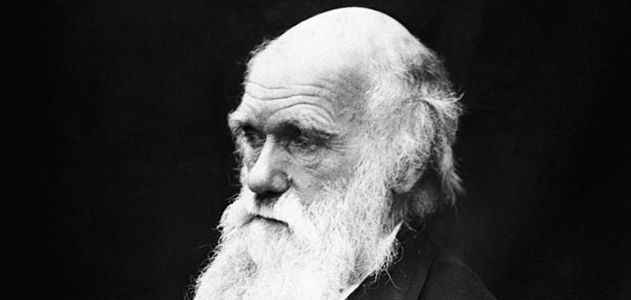


By Steve Sailer
03/23/2001
Scientific knowledge about the human race is accumulating so quickly that two influential American magazines have felt it necessary to run major articles trying to divert attention away from the true nature of what is being learnt.
An April 2001 Atlantic Monthly profile by Steve Olson of population geneticist L.L. Cavalli-Sforza ("The Genetic Archaeology of Race") is basically a press release from the Cavalli-Sforza Ministry of Propaganda. It is an uncritical rehash of the great race scientist’s long-running ploy of trying to defend his research projects from his enemies on the left by issuing transparently illogical attacks upon his admirers on the right.
Even more dubious is Andrew Ferguson’s "Evolutionary Psychology and its True Believers" in The Weekly Standard of March 19, 2001. Having signally failed to halt the growth of neo-Darwinism via his earlier angry reviews of books by Steven Pinker and Francis Fukuyama, Ferguson, realizing that he’s outgunned scientifically, turns now to the neo-Lysenkoist Left for expert support. Darwinophobia makes for some strange bedfellows, but few stranger than seeing Marxist warhorse Stephen Jay Gould, peecee biologist Steven Rose, lesbian avenger Anne Fausto-Sterling, and their ilk quoted admiringly in the pages of The Weekly Standard.
(This is totally off the topic, but does anybody have a theory why practically half the guys who write about genetics are named "Steve?")
I've written several articles before on the strengths and weaknesses of both Cavalli-Sforza’s work and evolutionary psychology. In this column, I'll offer a few new comments on the Atlantic article, and offer links to my earlier efforts. I'll then follow up with a review of The Weekly Standard piece next time.
Let’s first consider Cavalli-Sforza’s disinformation campaign.
The Atlantic article begins:
"Over the past decade or so genetics researchers have been undermining the widespread belief that groups of people differ genetically in character, temperament, or intelligence. They have shown that all human beings are incredibly similar genetically — much more so than other species of large mammals. They have revealed the folly of attributing group behavioral differences to biology rather than culture."
This is 180 degrees flat wrong. What the journalist never reveals is that Cavalli-Sforza, the ventriloquist behind his astounding assertions, has practically no professional expertise on this question whatsoever. C-S has carefully avoided studying genes that influence "character, temperament, or intelligence." Cavalli-Sforza only researches "junk genes" that don’t do anything.
Cavalli-Sforza has a perfectly good scientific reason for this. He wants to understand the family tree of the races. For this, he needs to track similarities and differences among genes that are caused solely by random mutations, and are passed on without alteration from generation to generation. These tell-tale mutations provide hereditary "fingerprints" that can be used to show that, say, most Malagasys on Madagascar off the east coast of Africa are surprisingly closely related to Malayo-Indonesians, four thousand miles east across the Indian Ocean. (Indeed, Madagascar was largely settled by Southeast Asians who rafted that incredible distance in ancient times.) This is wonderful stuff to find out.
What Cavalli-Sforza can’t use in his research are genes that actually do anything. Genes that help you survive and reproduce are not passed on as automatically as neutral genes. Instead, Darwinian selection — natural, sexual, and artificial — is constantly causing changes in gene "alleles" among active genes. Unlike junk genes, important genes change to adapt to local climates and cultures. And that would screw up C-S’s genealogies.
To take an obvious example, tropic peoples in Africa, South India, and some parts of New Guinea and Melanesia tend to have very dark brown skin, suggesting they have similar genes in this regard. That does not mean, however, that they are closely related genealogically. They may have separately evolved a single similar trait — near-black skin — as a response to similar climates. (And, indeed, while Africans and Melanesians tend to behave quite similarly, the dark brown computer programmers from Bangalore are definitely the odd men out of this trio.)
Similarly, muscular West Africans and Samoans from the Pacific are both heavily over-represented in the NFL, but the genetic similarities that make them formidable football players don’t imply that they are close cousins. Darwinian selection has simply created two racial groups that turn out to be similar genetically in football talent. Yet West Africans and Samoans are, according to Cavalli-Sforza’s study of neutral genes, located extremely far apart on the human race’s family tree.
Thus, when Cavalli-Sforza starts issuing obiter dicta about how genetic differences can’t cause behavioral differences, he is talking through his hat. He is simply ignorant on the subject, as you can quickly notice from the obvious mistakes of fact and logic in his writings and those of his acolytes.
For example, the Atlantic article makes the following astoundingly lame argument for why genetic differences in intelligence among races can’t exist, when genetic differences in skin color obviously do exist: "Skin color is determined by a handful of genes … The development of the brain involves thousands of genes…"
Well, so what?
Dogs' brains also involve thousands of genes, yet dog breeds differ radically in intelligence and personality. Take a look some time at Stanley Coren’s fun ranking of the working intelligence of dog breeds, from the whip-smart Border Collie to the dumb as a tree stump Afghan Hound.
I can certainly forgive Cavalli-Sforza for playing such a devious game to protect his funding from leftist zealots. But I won’t help him play it.
My earlier VDARE articles on Cavalli-Sforza:
[Steve Sailer is founder of the Human Biodiversity Institute and movie critic for The American Conservative. His website www.iSteve.blogspot.com features his daily blog.]
March 23, 2001